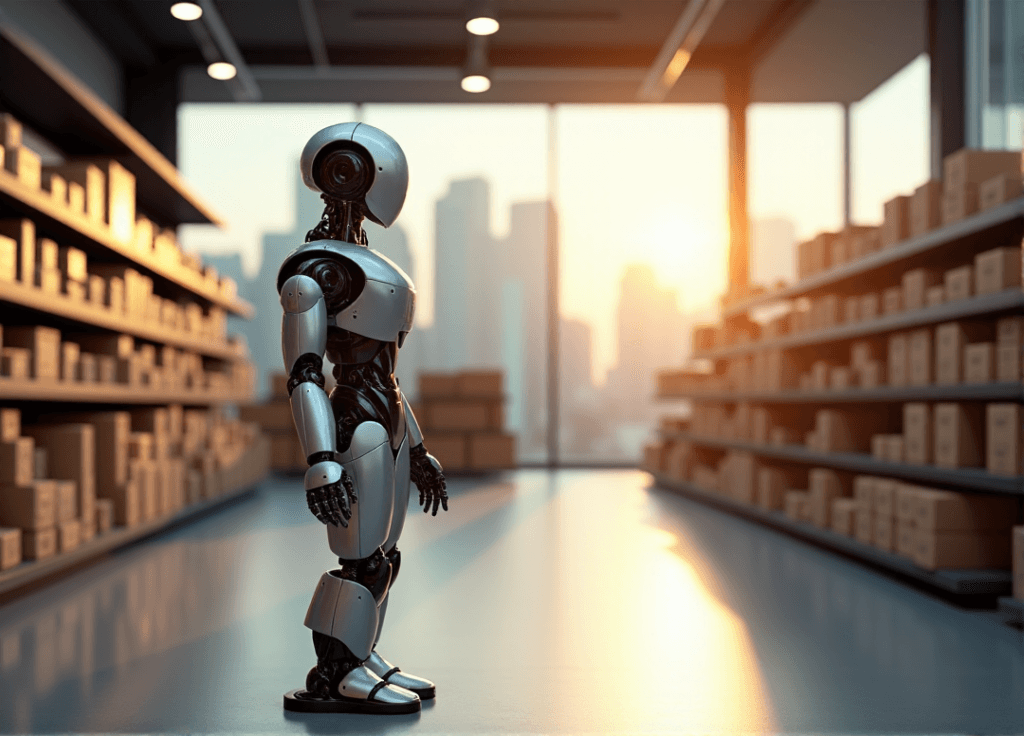Transforming Retail with AI: Elevating Operational Efficiency and Future-Proof Growth
The Rise of AI Automation Skills in Retail
Will Retail’s Future Depend on Its Ability to Automate 80% of Tasks by 2025? As businesses strive for operational efficiency and future-proof growth, developing AI automation skills is crucial. In this article, we’ll explore how AI-powered solutions can transform retail operations, drive efficiency, and boost revenue with enhanced customer experiences. By mastering AI automation skills, retailers can stay ahead in a rapidly evolving market, leveraging technology to streamline processes, reduce costs, and unlock new opportunities for growth.
The Importance of Artificial Intelligence Expertise
Artificial intelligence (AI) has revolutionized the retail industry by providing insights into customer behavior, preferences, and purchasing patterns. With AI-powered solutions, retailers can analyze vast amounts of data, identify trends, and make informed decisions to drive business growth. The adoption of AI technology has become a key differentiator for successful retailers, enabling them to stay ahead in an increasingly competitive market.
Machine Learning Capabilities: A Game-Changer for Retailers
Machine learning capabilities are at the heart of AI automation skills, allowing retailers to analyze complex data sets and make predictions about customer behavior. By leveraging machine learning algorithms, retailers can identify patterns and trends that would be difficult or impossible to detect manually. This enables them to optimize pricing strategies, inventory management, and supply chain logistics, ultimately driving revenue growth and improving operational efficiency.
Benefits of AI-Powered Retail Operations
The implementation of AI-powered solutions in retail operations has numerous benefits, including:
- Improved operational efficiency: AI automation skills enable retailers to automate repetitive tasks, freeing up staff to focus on high-value activities.
- Enhanced customer experiences: AI-powered solutions provide personalized recommendations, enabling retailers to offer tailored products and services that meet individual customer needs.
- Increased revenue growth: By analyzing data and making informed decisions, retailers can optimize pricing strategies, inventory management, and supply chain logistics, ultimately driving revenue growth.
- Reduced costs: AI automation skills enable retailers to streamline processes, reduce manual errors, and minimize waste, resulting in significant cost savings.
Achieving Operational Efficiency with AI Automation Skills
To achieve operational efficiency, retailers must develop AI automation skills that enable them to:
- Automate repetitive tasks: AI-powered solutions can automate tasks such as data entry, inventory management, and supply chain logistics.
- Analyze complex data sets: Machine learning capabilities enable retailers to analyze vast amounts of data, identifying trends and patterns that inform business decisions.
- Optimize processes: AI automation skills enable retailers to streamline processes, reducing manual errors and minimizing waste.
Future-Proof Growth with AI-Powered Solutions
As the retail industry continues to evolve, businesses must adopt AI-powered solutions to stay ahead. By developing AI automation skills, retailers can:
- Leverage technology: AI-powered solutions enable retailers to leverage technology to drive growth, improve operational efficiency, and enhance customer experiences.
- Stay competitive: In an increasingly competitive market, retailers must adopt AI-powered solutions to stay ahead of the competition.
- Unlock new opportunities: By developing **AI automation skills**, retailers can unlock new opportunities for growth, driving revenue expansion and improving operational efficiency.
Case Study: Walmart’s Successful Implementation of AI-Powered Solutions
Walmart, a retail giant, has successfully implemented AI-powered solutions to drive business growth. By leveraging machine learning capabilities, Walmart has:
- Improved operational efficiency: AI automation skills enabled Walmart to automate repetitive tasks, freeing up staff to focus on high-value activities.
- Enhanced customer experiences: AI-powered solutions provided personalized recommendations, enabling Walmart to offer tailored products and services that meet individual customer needs.
Table: Benefits of AI-Powered Retail Operations
| Benefit | Description |
|---|---|
| Improved Operational Efficiency | Ai automation skills enable retailers to automate repetitive tasks, freeing up staff to focus on high-value activities. |
| Enhanced Customer Experiences | Ai-powered solutions provide personalized recommendations, enabling retailers to offer tailored products and services that meet individual customer needs. |
| Increased Revenue Growth | By analyzing data and making informed decisions, retailers can optimize pricing strategies, inventory management, and supply chain logistics, ultimately driving revenue growth. |
| Reduced Costs | Ai automation skills enable retailers to streamline processes, reduce manual errors, and minimize waste, resulting in significant cost savings. |
Additional Sources of Information
For those interested in learning more about AI-powered retail operations, here are some additional sources of information:
- NRF (National Retail Federation): “Retail’s Digital Transformation: A Guide to AI and Machine Learning” – This comprehensive guide provides an overview of the current state of AI and machine learning in retail, as well as practical advice for implementing these technologies.
- McKinsey & Company: “AI in Retail: How to Leverage Technology for Growth and Efficiency” – In this report, McKinsey & Company explores the opportunities and challenges of adopting AI-powered solutions in retail, including case studies and best practices.
- Forrester Research: “The Future of Retail: How AI and Machine Learning Will Shape the Industry” – This research study provides an in-depth analysis of the impact of AI and machine learning on the retail industry, including predictions for future growth and innovation.
By mastering AI automation skills, retailers can stay ahead in a rapidly evolving market, leveraging technology to streamline processes, reduce costs, and unlock new opportunities for growth. With the help of AI-powered solutions, retailers can drive operational efficiency, enhance customer experiences, and achieve future-proof growth.
Explore more in our category page or visit our homepage.
